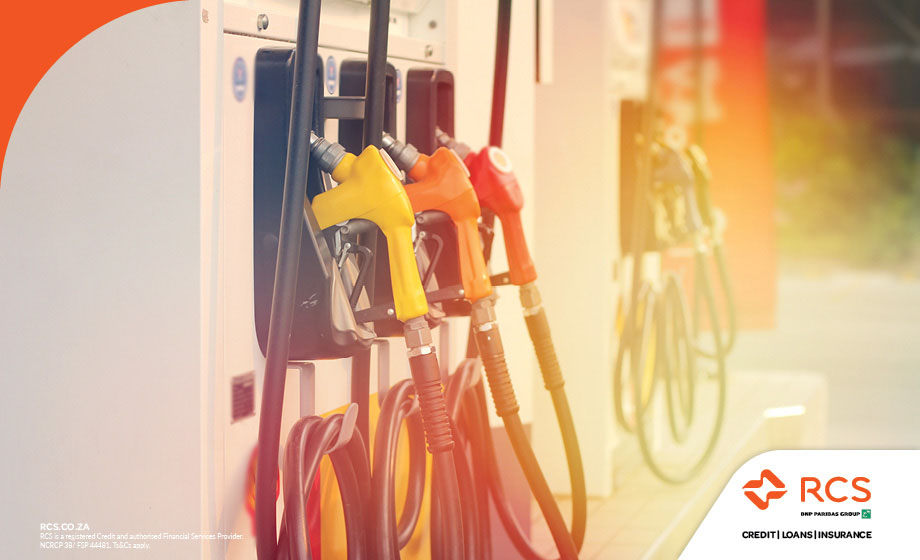Fuel Price Expectations for the Rest of 2023
08 NOVEMBER 2023
In 2023, South Africa witnessed significant fluctuations in petrol and diesel prices, posing challenges for consumers, businesses, and the economy at large. The year began with soaring fuel costs, impacting transportation, inflation, and overall living expenses, which really could have put a strain on your credit card. The hikes have had a systemic impact on consumers. In total, petrol prices have seen an increase of over 14% in 2023, while diesel's cost has risen by over 8%. In October, motorists were again queued at the fuel pumps as they braced for an increase of R1.09 - R1.14, while those with diesel vehicles would pay R1.94-R1.97 more per litre.
The hikes have had a systemic impact on consumers. In total, petrol prices have seen an increase of over 14% in 2023, while diesel's cost has risen by over 8%. In October, motorists were again queued at the fuel pumps as they braced for an increase of R1.09 - R1.14, while those with diesel vehicles would pay R1.94-R1.97 more per litre.
However, November data points to a possible reprieve from the bombardment of rising costs, with a Business Tech report on the mid-month data from the Central Energy Fund (CEF), which indicates a decrease could be on the cards.
The CEF data shows the potential of a drop of around R1.90 in the petrol price, along with around 75 cents per litre on diesel. If this holds through to the end of October motorists could see the first cuts in three to four months.
It is important to note, however, that South Africa's fuel prices are strongly linked to the rand/dollar exchange rate, and there are a number of other factors that could still make an impact, including the current conflict in the Middle East.
Factors Influencing Price Increases
Global Crude Oil Prices: South Africa heavily relies on imported crude oil. Fluctuations in global crude oil prices directly impact domestic fuel costs. Geopolitical tensions, production cuts by oil-producing nations, and increased demand from emerging economies have collectively led to soaring oil prices.
Exchange Rates: The value of the South African Rand (ZAR) against major currencies significantly influences fuel prices. When the Rand weakens against the US Dollar, the cost of importing oil rises, leading to higher fuel prices domestically.
Supply Chain Disruptions: Disruptions in the global supply chain and other geopolitical factors have hampered the smooth flow of oil, leading to shortages and increased costs.
Government Taxes and Levies: Government taxes and levies imposed on fuel also contribute to the final retail price. Adjustments in these taxes can lead to immediate changes in fuel prices.
What is the fuel price made up of?
- GFL (General Fuel Levy): The GFL is a government-imposed tax on each litre of fuel sold. It serves as a source of revenue for the government and is included in the retail price.
- RAF Levy (Road Accident Fund Levy): This levy is specifically designated for the Road Accident Fund, which compensates victims of road accidents. Like the GFL, it is a per-litre charge added to the fuel price.
- Basic Fuel Price (BFP): The BFP is the actual cost of the fuel before any taxes or levies are added. It includes various elements such as freight and insurance costs, cargo dues, storage, and financing. These costs are influenced by international factors like crude oil prices, exchange rates, and shipping expenses.
- Wholesale and Retail Margins: Fuel wholesalers and retailers, including petrol stations, need to cover their operational costs and make a profit. These margins are added to the BFP, contributing to the overall retail price.
- Distribution and Transport Costs: Getting fuel from refineries to fuel stations involves transportation and distribution expenses. These costs include fees related to pipelines, trucks, storage facilities, and other infrastructure necessary for the fuel supply chain.
Understanding these components can help you to adjust your expectations during any given year in South Africa on fuel prices. Fluctuations in international oil prices, changes in exchange rates, and alterations in taxes or levies directly impact the final price you pay for petrol.
Despite some recent positive reports arriving ahead of November 2023, there was still a bleak outlook back in September, and with numerous risk factors still hanging around, it would be wise to work your budgets smartly for the remainder of 2023. While times may remain tough at the pump, remember that you can use your RCS Credit Card or even your RCS Store Card to fill up at hundreds of Engen and Shell stations across South Africa.



